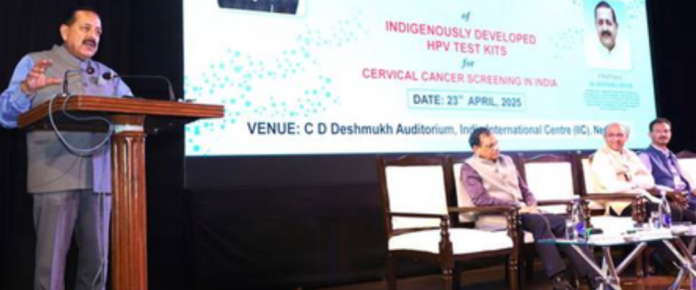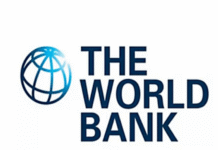New Delhi– Union Minister Dr. Jitendra Singh on Wednesday emphasized the urgent need for India to position itself as a global leader in preventive healthcare, particularly in light of the country accounting for 25% of global cervical cancer deaths, often due to late diagnosis.
During a joint meeting with representatives from the Department of Biotechnology (DBT), AIIMS New Delhi, BIRAC, ICMR, and industry partners, Dr. Singh reviewed the progress of indigenously developed HPV test kits for cervical cancer screening. He hailed the initiative as a significant milestone in India’s preventive healthcare efforts, led by the Ministry of Science and Technology.
India ranks fourth globally in cervical cancer-related morbidity, underscoring the need for widespread, affordable screening. Dr. Singh noted that while HPV (human papillomavirus) isn’t the sole cause of cervical cancer, research indicates a 90% correlation, making targeted prevention strategies essential.
“Our ultimate goal is to enable mass, affordable, and accessible cervical cancer screening across India,” Dr. Singh stated.
Highlighting India’s growing leadership in healthcare innovation, he pointed to the development of the world’s first DNA vaccine, a project that brought India international recognition and redefined its role in preventive healthcare.
“This DNA vaccine showcased India’s capability to lead in preventive healthcare, challenging outdated perceptions that India neither prioritized preventive nor curative care,” Dr. Singh said.
He also highlighted Nafithromycin, India’s first indigenous antibiotic, which has shown promising results, and referenced India’s success in gene therapy trials for hemophilia, which were featured in the prestigious New England Journal of Medicine (NEJM). Both NEJM and the British Medical Journal, two of the world’s oldest medical publications, have acknowledged India’s healthcare research achievements.
Dr. Singh emphasized the importance of private sector collaboration, advocating for a “whole-of-science, whole-of-government” approach to healthcare advancement. He introduced the concept of “PPP plus PPP” — Public-Private Partnerships at both national and international levels — a model successfully adopted by several European countries in the life sciences sector.
India’s strides in healthcare innovation, he concluded, are laying the groundwork for the nation to emerge as a global leader in preventive healthcare. (Source: IANS)







